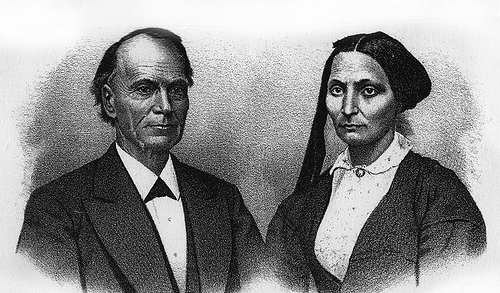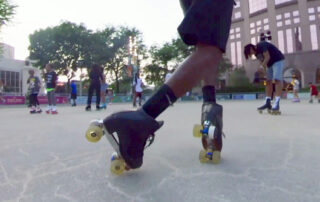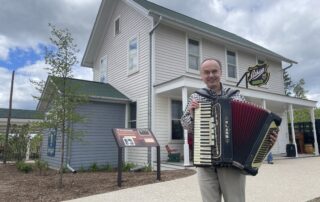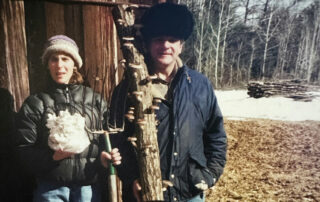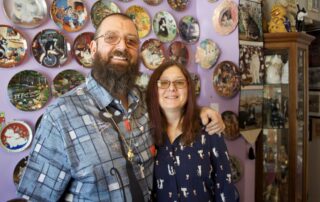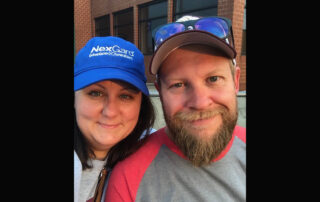Valentine’s Day was not, you’d guess, a high point in the lives of Milwaukee’s pioneers. If their photographs are any clue, the city’s early settlers were a cheerless lot, doomed to lives of unending work and unbending morals. The faces in a thousand old tintypes look as if they had scant time for hearts and flowers.
The pictures are deceptive. The sober expressions of the 1800s were the inevitable result of long exposure times and a different attitude toward presentation. The camera-eating grins we wear today say, in effect, “Like me.” The stern faces of our ancestors said, “Respect me.”
Appearances to the contrary, love did flourish on the frontier. The pioneers were never immune to sentiment, and some could be downright mushy. Consider Elijah Estes. Born in North Carolina in 1814, he decided to seek his fortunes in the West at the age of twenty. Lacking a horse, he walked most of the thousand miles to Chicago, arriving footsore and broke.
There he met a dark-haired young woman named Zebiah Wentworth. The couple fell in love and pledged, over the course of a long winter, to spend the rest of their lives together.
Elijah apparently found Chicago too settled for his tastes. As soon as the snow melted, he walked north to a wilderness outpost he knew only as “Milwaky.” There he claimed land in what is now the Bay View neighborhood and built a log cabin for his bride-to-be. On April 5, 1835, Elijah sent Zebiah what might have been Milwaukee’s first love letter.
“Mine Own and Beloved,” he began, “Your last prayer has kept ringing in my ears like music of comfort and my gloomy way was made bright…. I am fearful that it may be hard for you at first, the change from comfort to almost Indian life, but I know that your love for me will bear you through. Fortunes always smile on those who love and who loves more dearly than we? I am thinking all the time of what you told me when you said farewell and I am going to make the chips fly from this new ax, to finish the cabin and come back for you. O, what a charm the memory of our pledge will ever work over us; a memory dearer than riches, man’s hoard of wealth.
“If it had not been for you I would have gone back home to North Carolina as soon as I set foot in Chicago, although lame from my thousand mile walk. But when we met I knew that my fate was sealed and happily I labor for you in your northern land.”
“The days are lonely without you,” Elijah concluded, “but I am coming for you soon.”
He was as good as his word. Estes returned to Chicago, married Zebiah, and brought her home to Milwaukee. Their marriage was a resounding success. The couple became prosperous farmers, raising six children to adulthood and building a brick mansion in what is now South Shore Park. They died within a few months of each other in 1887, he at 73 and she at 77. Milwaukee’s pioneer Valentines now rest in a small cemetery south of their homestead. Carved on their simple stone marker is a tender epitaph: “For so He giveth His beloved sleep.”
